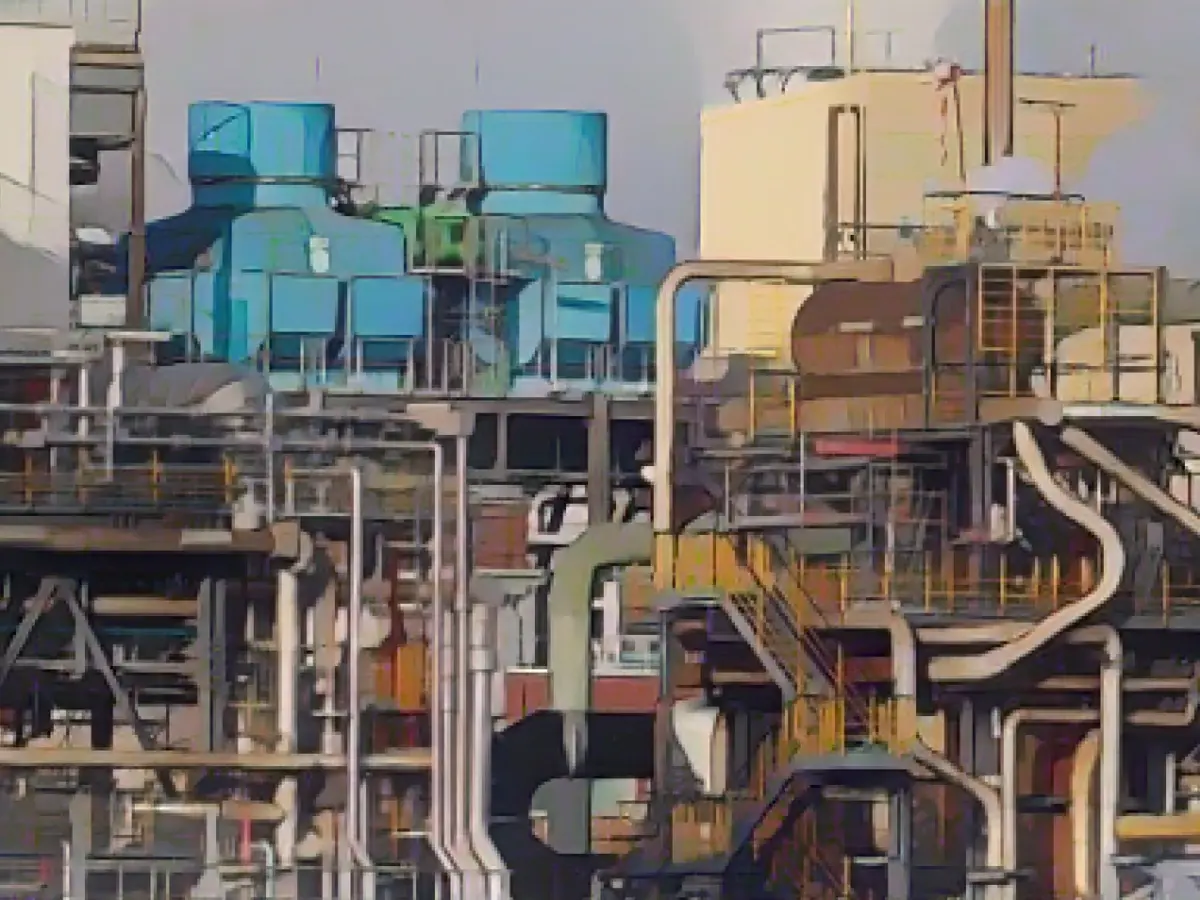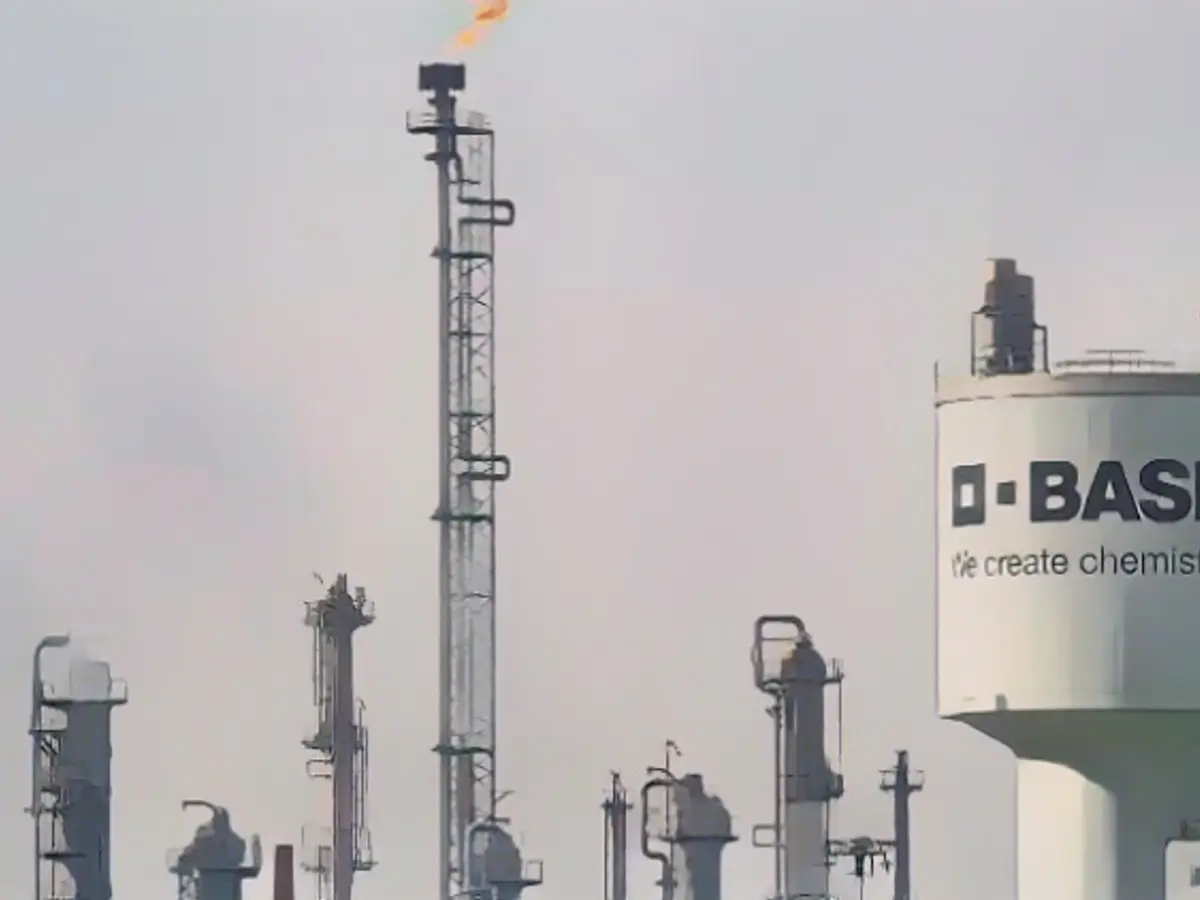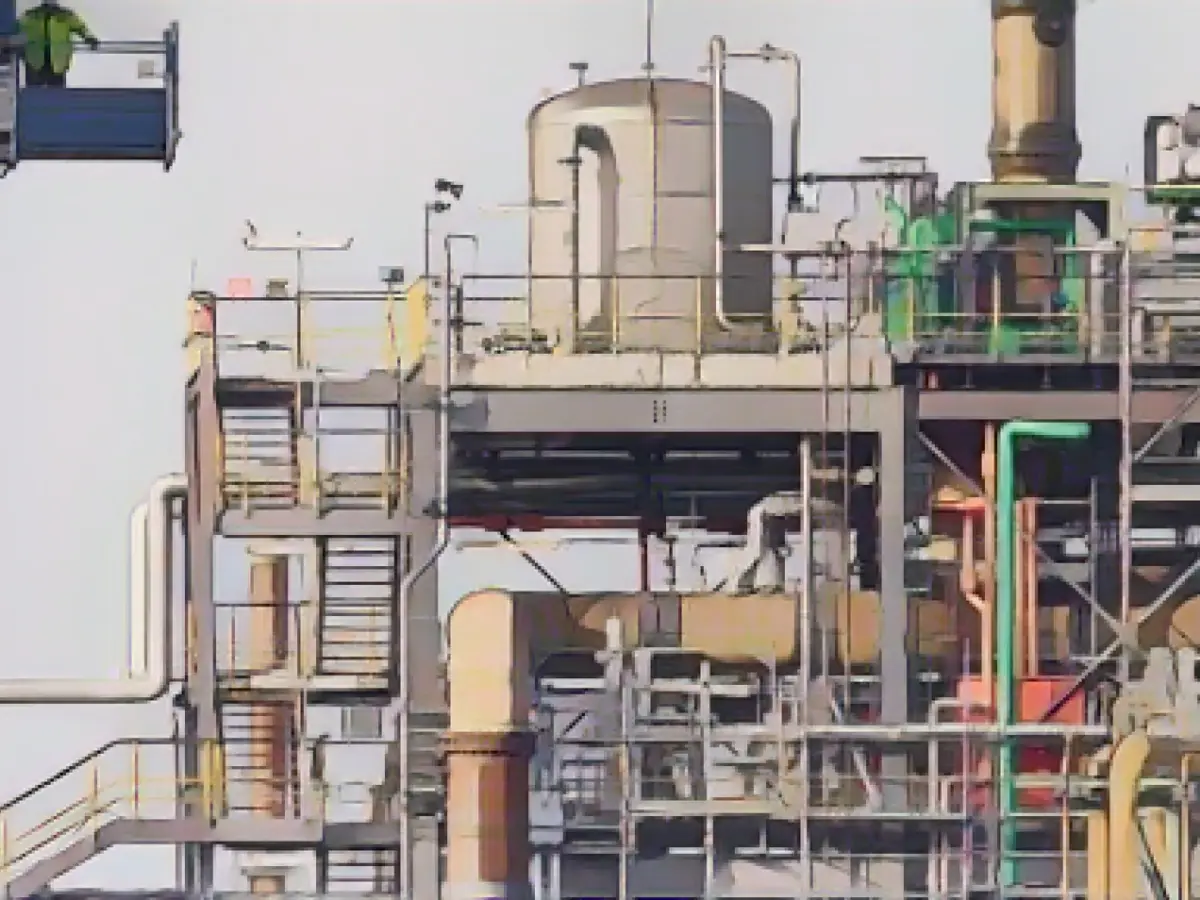Hopeless Outlook for the German Chemical and Pharma Sectors in 2024
After a tough year, the German chemical and pharmaceutical industry isn't expecting a swift recovery in 2024. Recent business conditions and future prospects are gloomy, according to the German Chemical Industry Association (VCI) in Frankfurt. The anticipated economic recovery has failed to materialize, shared VCI President Markus Steilemann. "We're smack dab in the middle of a deep, prolonged valley. And it remains uncertain how long we'll traverse its depths," he added.
Steilemann issued warnings against further closures of chemical plants in Germany and increased foreign investments. Affordable energy remains elusive, and the looming financial crisis now jeopardizes even higher electricity expenses as federal subsidies for grid fees are scheduled to halt. In Germany, electricity prices for major customers are nearly four times higher than in the USA and nearly twice as costly as in France.
The chemical and pharmaceutical sector is bearish about the ensuing year. According to VCI estimates, sales will slip by 3% in 2024, while production in Germany's third sizable industrial sector (following automotive and mechanical engineering) is poised to remain stagnant. The economically sensitive chemical industry will encounter the greatest hardships, Steilemann advocated for less red tape, quicker approvals, increased digitalization, and prioritization of government funding expenditures. "One thing is clear: the era of full wallets and special funds is history," he stated.
Linked hardships for interrelated sectors
The chemical and pharmaceutical industries have collectively faced tumultuous times. The escalating price of electricity and gas following the conflict in Ukraine has hit the energy-intensive industry more severely than almost any other in Germany. Moreover, orders from major industrial clients have waned due to the faltering economy. The cyclically sensitive chemical industry, as a supplier to the struggling construction sector, is feeling the heat of the weak domestic market. As a result, production and sales decreased, albeit from an incredibly high base.
In 2023, sales fell 12% to about 230 billion euros, with the VCI predicting, and production fell 8%, with the chemical industry alone experiencing an 11% drop. Industry capacity utilization averaged around 77%.
Implications for German Employment
The turmoil in the chemical industry has had noticeable effects on employment in Germany, which have been palpable for some time. BASF, a major player in the industry, has chosen to reduce its workforce by thousands of workers, shut down energy-intensive facilities at its main site in Ludwigshafen, and spin off several divisions. Other chemical companies, like Evonik, have also embarked on cost-cutting initiatives. In contrast, the pharmaceutical industry, particularly in Mainz, has been affected by the conclusion of the coronavirus vaccine boom – initially, Biontech, but subsequently, lab suppliers like Sartorius and Merck.
The projected rapid recovery in the chemical industry has not come to pass. In a VCI survey of approximately 350 companies, 45% anticipate seeing improvements at the earliest in 2025, while a third predicts a recovery in the second half of 2024, and just 13% expect it in the first half.
Nearly 40% of companies are experiencing significant declines in profits, with approximately 15% dipping into the red. On the other hand, 35% are experiencing stable business operations. "The longer this situation persists, the more plants will shutter, and job losses might become inevitable," warned Steilemann. However, in 2023, the number of employees in the German chemical industry remained stable at around 477,000.
Bright spots in the dark cloud
Recent developments in the chemical and pharmaceutical industry offer a glimmer of hope. The rate of profit decline has slowed, and turnover has not dipped as sharply as initially anticipated. Moreover, energy prices on the stock market have plummeted significantly since the 2022 gas crisis highs.
Sentiment has also improved recently. According to the Ifo Institute, the chemical industry's business climate rose in November for the third month in a row, although from a low base. Regardless, international competition, some of which benefits from cheaper energy, remains a significant concern for the German chemical sector.
The German government has granted energy-intensive businesses a reduced electricity rate, but the chemical industry had sought more comprehensive relief through the implementation of a broad, state-subsidized industrial electricity price. The electricity price initiative is deemed insufficient, with Steilemann criticizing the federal government for falling short of their expectations.
Side Notes
- The crisis in Ukraine resulted in significant electricity and gas price surges impacting various industries in Frankfurt, Germany.
- France and the USA have lower electricity and gas prices for major businesses, providing a competitive edge for their respective chemical and pharmaceutical industries, leading to a disadvantage for Germany.
- The automotive and mechanical engineering industries are essential to Germany, ranking as the third-largest industrial sector, surpassed only by automotive and mechanical engineering.
- France and the USA's chemical and pharmaceutical industries may serve as instructive examples for German leaders and industry executives looking for solutions to overcome challenges and guide their industries out of the economic downturn.
Enrichment Insights:
(Less than 15% enrichment figure)
- High production costs, as a result of high energy prices and regulatory burdens, are negatively impacting the competitiveness of German locations, causing a decline in production for the pharmaceutical industry, specifically a 1.5% decline in 2024 due to supply chain problems and capacity bottlenecks.
- Global economic conditions and a weakened sales environment for pharmaceutical products abroad, coupled with a reduction in production, have not allowed the industry to leverage its strong start in 2024.
- The potential introduction of tariffs by the US under the Trump administration and the weakening of global trade agreements threaten access to the US market, posing a significant challenge for the pharmaceutical industry.
- The European chemical industry is facing a wave of plant closures and significant output scaling back due to weak demand, high natural gas prices, and potential trade war looming threats. Chemical firms in Germany, with over 200 industrial plants, including chemical facilities, at risk, may see up to 25,000 job losses.
- The growing bureaucratic hurdles, such as the German Supply Chain Duty of Care Act (LkSG) and the EU Medical Device Regulation (MDR), are increasing complexity and costs, negatively affecting the industry's innovative strength. Smaller manufacturers are forced to relocate their activities overseas due to these regulatory challenges.
- Strategic relocation to more economically favorable countries, investment in sustainable technologies, regulatory differentiation, and continued focus on innovation are potential solutions proposed to overcome the challenges in the chemical and pharmaceutical industries.








